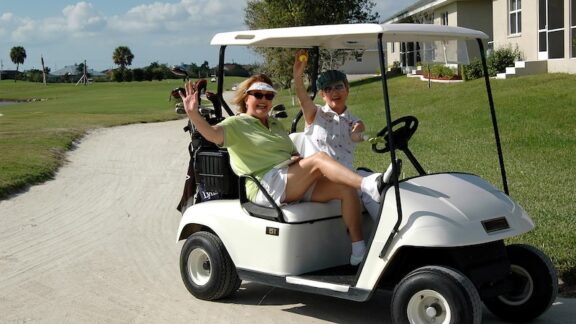Know the signs of elder abuse so you can protect your loved one from physical abuse, emotional abuse, sexual abuse, neglect, health care fraud, and financial exploitation. And just as important, know how to report the abuse, to protect your loved one and potentially to protect other vulnerable people.
Elderly individuals face the risk of being abused in their home, a relative’s home, or a nursing care facility. Many of these cases are never noticed – or never reported. And because older adults become frailer as they age, they cannot stand up to the bullying or the verbal and physical attacks accompanying it. Their declining abilities to see and hear also provide opportunities for others to take advantage of them, financially as well as physically. By knowing the signs of elder abuse, you can help make sure this doesn’t happen to your loved one.
Always be alert
Most nursing facilities and home care workers are reputable, kind, and ethical. However, managers may not be aware of every time a worker steps over a line into abuse. In fact, Nursing Home Abuse Justice reports that 66% of nursing home staff members admitted to abusing residents in a 2020 study from the World Health Organization.

Family members and supervisors don’t always take nursing home abuse seriously, as they may pass the person’s bruises or complaints off to dementia or other age-related mental deterioration. However, even though signs of elder abuse and dementia can overlap at times, every sign should be thoroughly investigated.
If you have a loved one in a potentially harmful or negligent situation, be aware of the following signs indicating abuse. Then you can take steps to ensure their proper care and safety in the future.
Typical signs of elder abuse
If you notice changes in their personality and behavior, or you see a conflict between the senior and caregiver, you are right to suspect nursing home abuse or other caregiver abuse.
Physical abuse
- Bruising, scars, or welts on their body
- Unexplained broken bones or dislocations
- Signs of restraint, such as rope marks on the wrists or ankles
- Broken eyeglasses
- The caregiver refuses to allow you to be alone with the elderly person
Emotional abuse
- Caregiver using demeaning, threatening, or controlling behavior toward your loved one
- Unusual behavior in the older adult, such as mumbling, thumb-sucking, or rocking
- The senior shows signs of fearing the caregiver
Sexual abuse
- Bruising around the genitals or breasts
- Vaginal or anal bleeding not related to a medical condition
- Unexplained STDs or other genital infections
- Bloody or stained underwear
Neglect

- Leaving the older person unattended in public
- The client being unsuitably dressed for the weather
- The older person regularly being dirty or unbathed
- Soiled bed clothing or dirty conditions
- Bedsores from the lack of regular turning
- Unusual weight loss or dehydration
Financial exploitation
- Unexplained changes in the senior’s finances, including credit score
- Withdrawals from the patient’s bank accounts
- Changes in a will, power of attorney, life insurance beneficiaries, or property titles
- Cash or other valuables missing from the senior’s room or household
- Names added to the elder’s credit cards
- ATM withdrawals from a bedridden senior’s bank account
- Unusual goods, services, or subscriptions the elder would not have purchased
Related: Protecting seniors from scams
Health care fraud
- Duplicate bills for the same services or devices
- A bill for healthcare that was never provided
- A lack of adequate staff training
- Not enough staff to care for the patients
- Evidence of too little or too much medication
- Evidence of poor care, even when the services have been paid in full
Causes and risk factors for elder abuse
Even when a caregiver is paid by and works for a nursing facility or home care agency, they can be under stress, including financial stress, leading to elder abuse. A shortage of staff members at nursing facilities can result in caregivers having too much responsibility, causing additional pressure. Other causes include lack of proper training, deficient work environments, or unsuitable caregivers to look after the patients.
Some elderly patients in nursing homes have multiple medical conditions and are completely dependent on others for their care. If the patient’s demands are difficult to manage and caregivers cannot always meet them, the stress level increases, and the older adult could be at greater risk.
If you observe any of the signs of elder abuse, report it immediately.
Related: Signs of self-neglect in a senior adult
How to report signs of elder abuse
Nursing home abuse is serious. And it often gets worse and sometimes turns deadly. When appropriate, begin by contacting senior management of the home health care agency, nursing care facility, or other organization. If necessary, you can stop elder abuse in its tracks by reporting it to one of the many local, state, and national agencies.
If you believe your elderly loved one is in immediate danger, dial 911 to report the abuse.
Find more information on your best actions using the following resources:
- The U.S. Department of Health and Human Services
- Eldercare Locator, a public service of the U.S. Administration on Aging. Click on the website link or call 1-800-677-1116
- Administration for Community Living
- Elder Justice
- The National Center on Elder Abuse state resources listing, a service of the U.S. Department of Health and Human Services, Administration for Community Living
- Enter “reporting elder abuse” in an internet search engine for more state resources
- Doctors and other medical personnel
When you report suspected abuse, you are opening an investigation into that senior’s well-being – and potentially sparing further abuse. You could even hold nursing facilities legally responsible if they harmed your loved one.
Article updated on June 24, 2022, with more resources and other updated information.




